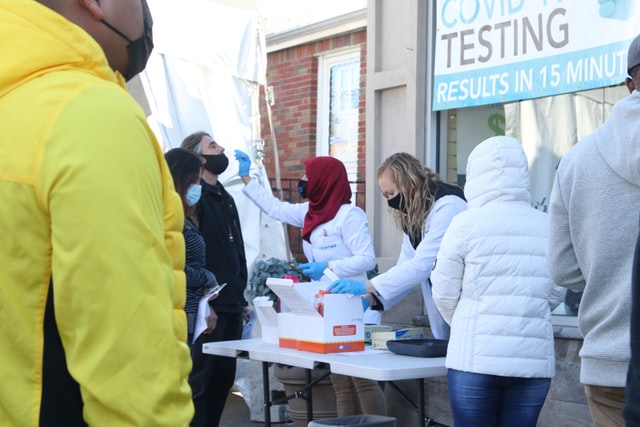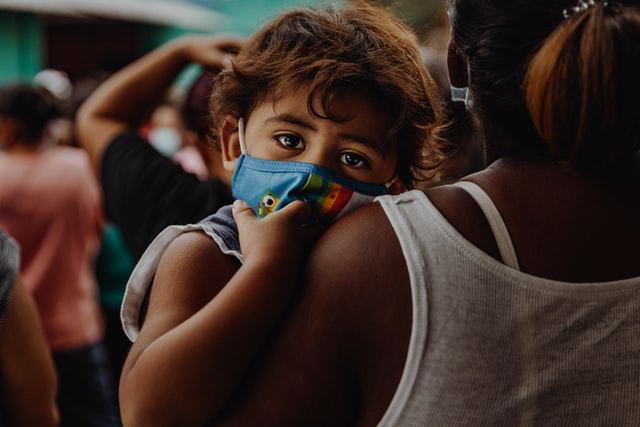The World Health Organization has raised alarm about the increase in Corona virus cases and fatalities, which is placing pressure on health systems, as well as infections with what is known as "monkeypox," with more than 10,000 cases documented in more than 60 countries so far. Why is the Corona virus returning with such vigour?
- New Corona variants are spreading swiftly:
The World Health Organization's (WHO) highest level of alert is currently in effect due to the increasing trend in COVID-19 deaths, according to Tedros Ghebreyesus, the organization's director. He notes that the Emergency Committee on COVID-19 met last week and came to the conclusion that the virus continues to be a public health emergency of international concern.
Tedros claims that the committee voiced worry about the fact that omicron sub-variants like BA.4 and BA.5 continue to be a major cause of infections and fatalities all over the world.

According to the British newspaper The Independent, health experts from all over the world have expressed concern as they are learning more and more about how the Omicron PA5 mutant, the most prevalent coronavirus mutant currently present in the United States and abroad, can re-infect people just weeks after their initial infection with the virus.
Western Australia's chief health officer, Andrew Robertson, told News.com.au that while it was previously thought that getting vaccinated or recently been exposed to an illness would result in some degree of natural immunity, this is not the case with the new altered strain.
As per the British publication, the new PA4 and PA5 mutants have demonstrated their capacity to infect people who previously had significant immunity to Covid-19 infection, prompting some scientists to consider this final strain to be the most transmissible so far.
- Vaccines have no effect on the two emerging mutations:
The journal Science released a paper this week that highlighted the disturbing reality that many individuals are regularly infected, and noted that the two new variants had the potential to resist any previous treatments or vaccinations.
Danny Altman, an immunology professor, discussed how they monitored participants who had gotten three doses of the vaccination and others who had been exposed to severe illnesses during prior rounds of the omicron mutant in the trial. "This allowed us to test whether the omicron mutant naturally boosts immunity to Covid infection, as everyone hopes," Altman wrote in the Guardian.
"The response of most people to antibodies to the omicron mutant, even those who received three doses of the vaccine, was 20 times less than the response recorded against the first Wuhan strain, indicating that omicron infection does not contribute to enhancing immunity against any future infection with the omicron mutant," Dr. Altman continued.
Dr. Altman's research also supports the conclusions of numerous other studies that were recently published and issues a cautionary note about the new mutant's potential to circumvent naturally acquired immunity from earlier infections and vaccinations.
That being said, this does not imply that vaccinations are ineffective or a waste of time and resources because, at the very least, immunizations dramatically lessen the symptoms of infection with novel mutations.
- Less Precautions against the Virus:

In addition, the lifting of all restrictions and closures as well as the declaration that masks are not required even in hospitals by many nations around the world contribute to this widespread injury problem, especially during the summer when travel is more active and airports are crowded with passengers.
Virus surveillance by governments, including routine testing for the virus, has decreased dramatically, according to the World Health Organization, making it much harder to determine the impact of variables on disease transmission, disease characteristics, and the efficacy of preventative and curative measures.
- Inequality in vaccines distribtution:
The Guardian reports that the recent failure to reach the worldwide target of immunizing 70% of the world's population against Covid is due to the fact that poor nations were "at the back of the waiting line" when vaccines were initially introduced.
According to the most recent data from the Our World in Data website, vaccination rates throughout the world vary greatly, with only one in seven individuals in low-income countries receiving vaccinations. In contrast, over three out of four individuals in high-income nations had received vaccinations for around a year.

As of July 10, just 15.8% of individuals in low-income nations had had a vaccination, compared to 55 percent in lower-middle-income countries and 73.5 percent in high-income countries, according to data from Our World in Data.
In attempt to stop the virus from spreading and stop future alterations, activists and groups are urging for a fresh effort to promote the use of the vaccination more widely. Their appeal came as the World Health Organization reported last week that "Corona" injuries quadrupled and hospitalized cases increased by 50% globally during the previous six weeks.
Low-income nations had to wait months to get doses through the Covax Vaccine Sharing Scheme or from other donors as soon as the first vaccinations were launched globally in 2020, with wealthy nations purchasing the majority of the vaccines on the market.
When vaccinations were provided, there were frequently insufficient doses or amounts that were close to expiry. People are now dissatisfied and hesitant to approach vaccination clinics once more, according to Maza Seyoum of the Global Vaccine Southern Alliance.
She released a Statement saying that it is extremely difficult to expect individuals in such an atmosphere to spend a significant amount of time earning money in order to wait in line for a vaccine due to the obvious epidemic and the associated economic challenges.



You must be logged in to post a comment.